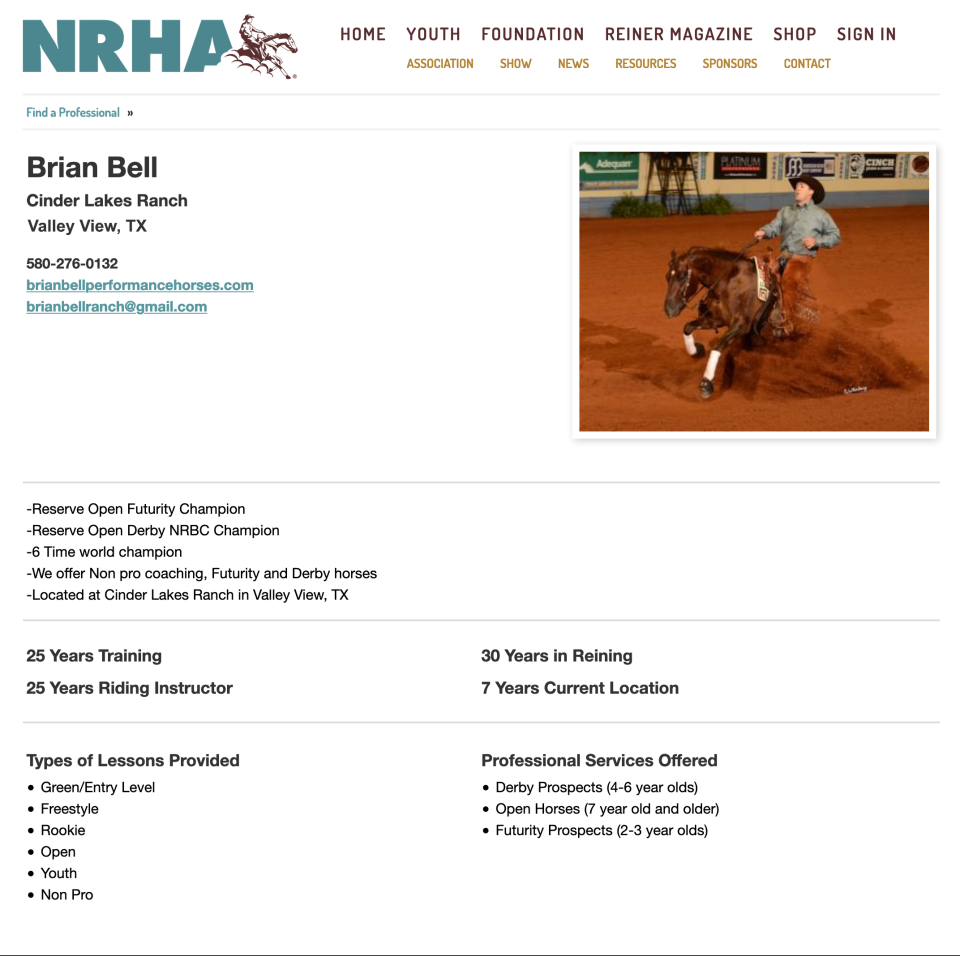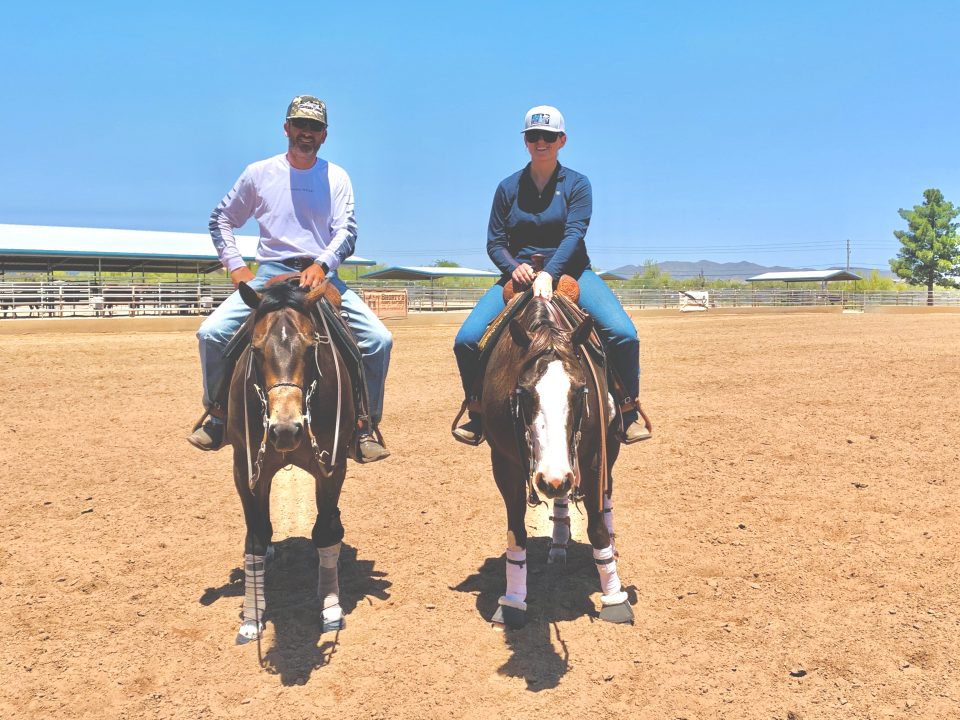How can collaboration, shared experiences, and learning from each other’s experiences enhance your business? One ‘group study’ expert (who’s also a reiner) shares her insights here. By Jennifer Paulson

You work in an inherently competitive industry. Show-pen success and NRHA Lifetime Earnings aside, you vie for horseflesh, customers, sponsors, and more to keep your business moving in a positive direction and your revenue numbers growing. So it might seem as if collaborating with fellow NRHA Professionals on matters of busines would be counterproductive to your goals.
Dr. Marsha Heinke, EA, CPA, CVPM disagrees and has experience to support collaborative efforts. The Grafton, Ohio, reiner owns and operates Veterinary Practice Made Perfect, a firm that provides business consulting, accounting, and tax advice to veterinary practices. Additionally, she’s involved with Veterinary Management Groups, which is where small groups of veterinarians come together to learn from each other—through both triumphs and failures—to improve their business practices in everything from accounting and personnel management to regulations and taxes.
Called “study groups” or “groups of 20,” these collaboratives haven’t yet been developed in the horse industry that we know of. However, Heinke’s insights and key learnings from working with veterinarians can open your mind and your eyes to the opportunities that lie within collaborative group work.
Learn about these topics from Heinke:
Part 1: A Little History and Keys to Success
Part 3: How a Group Could Help You
A Little History
The concept of study groups goes back to the 1970s. The idea came to the veterinary community by way of a veterinarian named Robert Featherston of Tulsa, Oklahoma.
“He was a very innovative thinker,” Heinke explains. “He wanted to find ways to make veterinary practices better at business so they could provide better care and support to their clients and patients. He spoke with his peers and found out that his jogging partner, who also owned a Ford dealership, collaborated with his fellow dealers to make their businesses the best they could possibly be through client service, marketing, inventory management, financials, and managing personnel. Bob was fascinated.”
Featherston attended one of the Ford meet-ups and brought the idea back to his peers at the American Animal Hospital Association. They decided to adopt the practice and set a scheduled to meet a few times a year following the Ford model.Heinke came to be involved with Veterinary Study Groups via her boss at the time, Owen McCafferty, CPA, in Cleveland, Ohio, who picked up Featherston’s idea when it stalled out.
Keys to Success
As in any successful group, certain attributes help ensure the success of a study group. It might seem too formal and structured to some, but that’s really what makes them effective resources for the members.
Heinke cites five main points that allow success for these study groups.
- Groups consist of one person from each of no more than 20 individually owned entities. This keeps the group discussions manageable and the costs easier to distribute across the group. Too few means the costs get too high; too many, and the discussion are difficult to manage and ensure that everyone gets what they need.
- Each group has a facilitator to organize speakers, content, and discussions during the meetings, as well as setting a meeting site, ordering meals, and handling post-meeting accounting. This person also plays a key role in ensuring that the group follows all legal considerations. (More on that later.)
- The groups are governed by bylaws and rules and have a set structure, which ensures that all members meet their obligations.
- Everyone in the group must contribute. This means being vulnerable, sharing data and ideas, fessing up to mistakes, and celebrating accomplishments.
- The group should meet in person at least twice a year. Virtual meetings outside those two main meetings can be helpful when schedules and budgets allow.
“It takes a certain personality to make this work,” Heinke shares. “When we go into business doing something we love, we never have to work a day in our lives. But we’re not trained in business operations unless that’s our area of passion—which isn’t likely for most reining professionals. Most entrepreneurs have some level of discomfort with these topics, and a successful study group can help you admit what you don’t know.”
Read the rest of this article at the links above.



